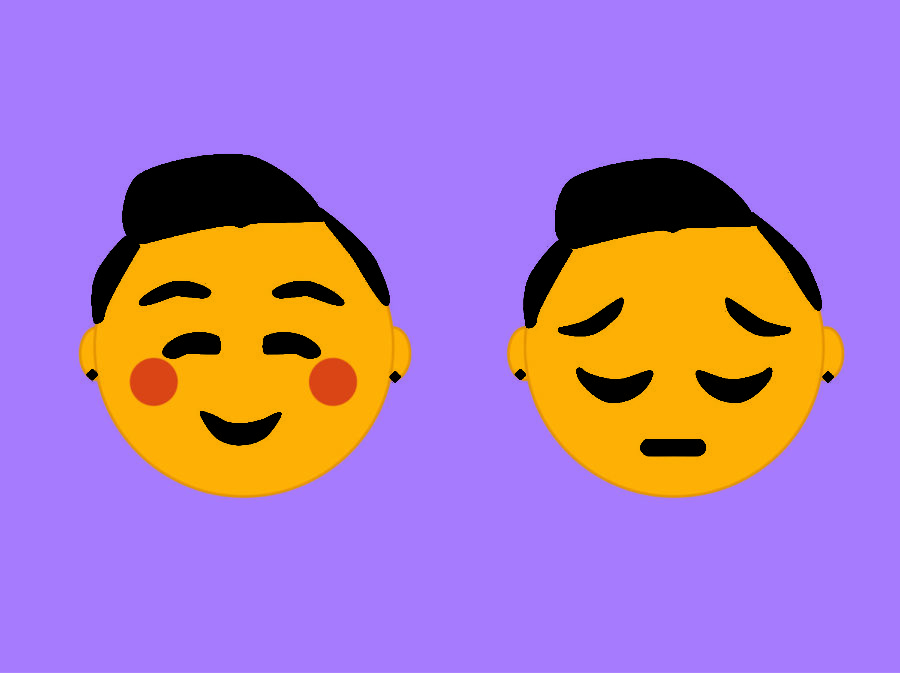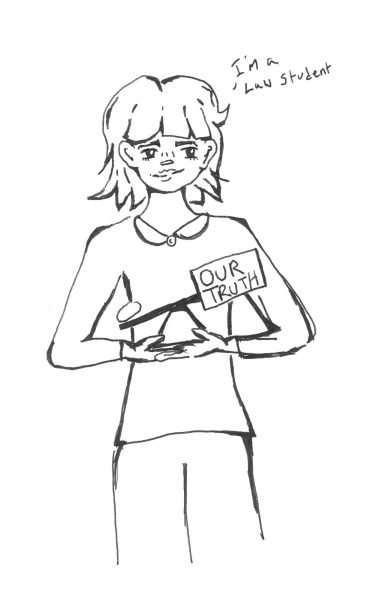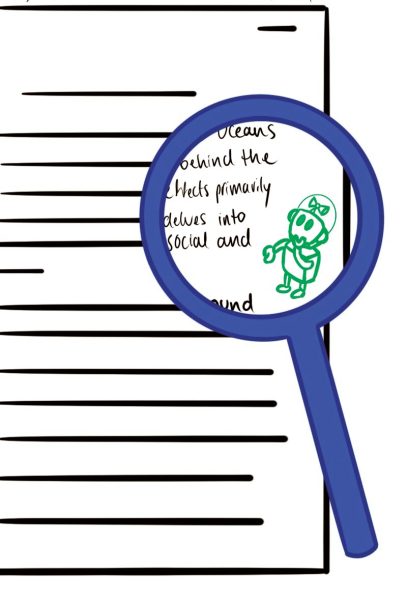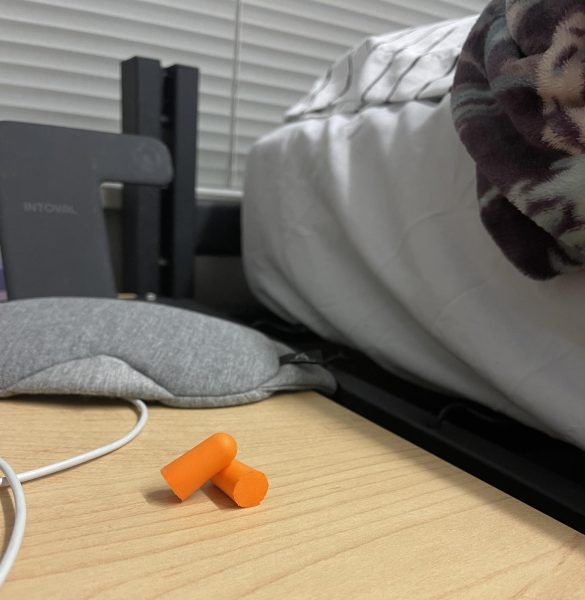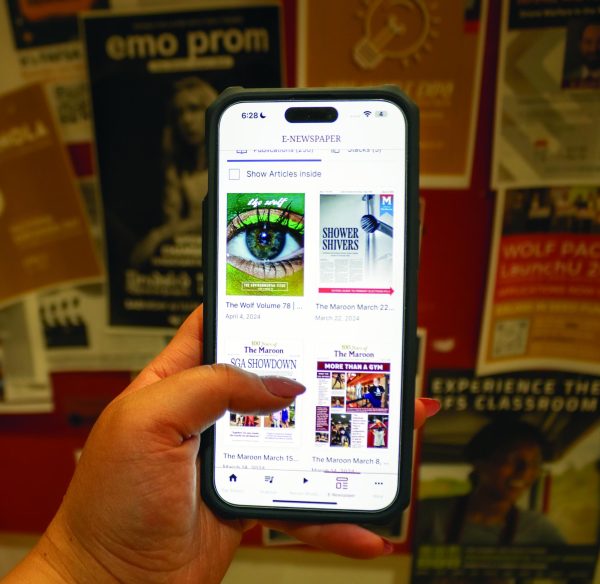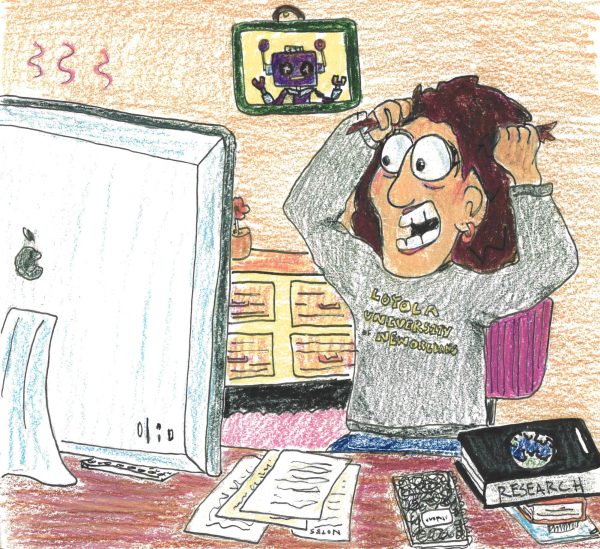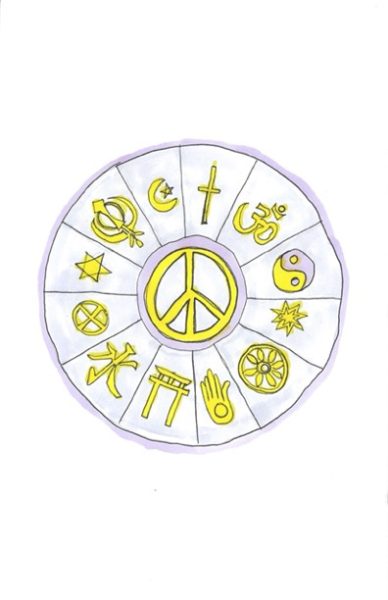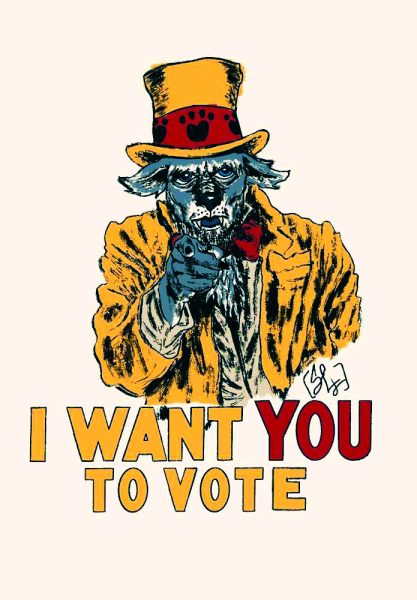Opinion: Self-Conscious: What it means and feelings associated
Photo credit: Ariel Landry
December 2, 2018
Self-conscious.
Whichever genius came up with that word knew exactly what they were doing.
Self. Conscious. Literally a consciousness of the self. A philosophical awareness of the idea of “me.” That is really all that term should mean, right? The conscious awareness of “you?”
But if this word is only describing a philosophical state, or referencing an idea we can consciously and cognitively understand, your self, then why is the word so synonymous with anxiousness, awkwardness and embarrassment? (which were three of the first four synonyms that popped up when looking up self-conscious on thesaurus.com).
When we talk about “self-consciousness” though, rarely are we talking about philosophy. We’re talking about the feelings associated with that cognitive awareness of your self, especially in social situations. Ex: “Yeah, fumps is cool and all, but I just feel way too self-conscious for it to be any fun.” or “Yeah, it just felt like no one was f—— with me at that party, bro. Everyone was just judging me.” (By the way, there’s never been a bar or party where “everyone” was judging somebody because of their attempts to socially interact. Often times, people are way too preoccupied with their own self-consciousness to even start judging others as harshly as they judge themselves.)
But why do we equate the increase in the awareness of ourselves to an increase in feelings of awkwardness and anxiety?
Self-proclaimed ‘genius’ Kanye West said it best when he said “I’m so self conscious/ That’s why you always see me with at least one of my watches/ Rollies and Pasha’s done drove me crazy/ I can’t even pronounce nothing, pass that Versace (pronounced ver-say-see)!”
The point Kanye was making there was that his increased levels of self-consciousness make him feel so bad, he has to overcompensate with material things that he does not actually care about, but knows others see as valuable. With the hope that wearing these perceived valuable things will make others see him as valuable too.
Self-consciousness keeps us from being ourselves (ironic, isn’t it?).
But are the contiguous awkwardness, anxiety and embarrassment of our self-consciousness a curse that we just have to live with? Does growing up in a culture that emphasizes individualism as much as America does mean that we are doomed to suffer from the insecurities of ourselves?
I don’t think so.
To me, the solution is obvious. If self-consciousness, a preoccupation with oneself to the point of debilitation, is causing you to feel so awkward and embarrassed and anxious, then be other-conscious.
Being other-conscious simply means being as caring and concerned for others as they are for themselves. I know it may sound cheesy and cliche, but hear me out.
Any person in human history who has ever existed, you, me, your mom and dad, the Starbucks barista, that cute girl who sits across from you in your history class, that one professor who gives you a really hard time, anyone, has wanted two things: to seek out happiness and avoid suffering. In that way, we are all undeniably the same.
If your preoccupation with yourself is provoking feelings of anxiety, embarrassment and awkwardness, then stop being preoccupied and solely worried about yourself.
Headspace, a guided meditation app and leading pioneer in the mediation movement of the 21st century with over 30 million subscribers in hundreds of countries around the world, has a really interesting animation that talks about this.
The animation explains, “When we focus less on chasing our own happiness and focus more on the happiness of others, we immediately find ourselves in the present moment. So not only are we benefiting others by having a more open, empathic mind, but we’re also benefiting ourselves by being more present and experiencing more happiness.”
Meanwhile, several studies highlight the link that exists between altruistic behavior and happiness. Author Allan Luks, for example, has written on the morale of thousands of Americans who regularly took part in volunteer activities, and found that they were in better places of mental and physical health than others their age as well as less prone to depressive states than the average member of the population.
The logic and science behind this line of thinking is pretty solid. When we focus on others and act with care and concern for the people around us, the feelings of anxiety, embarrassment and awkwardness seem to magically go away.
Self-consciousness may not be a curse that humans in America have to deal with, but an opportunity to learn, grow and empathize with each other.
Or as my good friend Sabelo Jupiter put it, “When we stop caring about what other people think of us, we start caring about other people.”
In conclusion of this hopefully not-too-preachy opinion piece about our self-consciousness, be selfish; love others.


